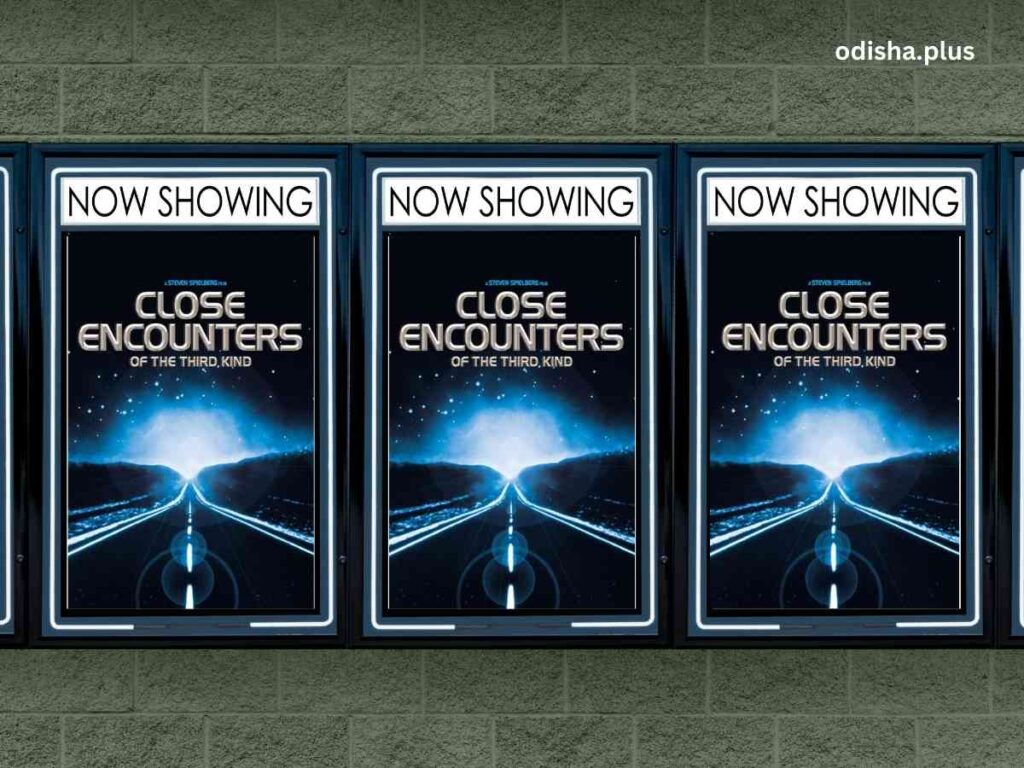‘Close Encounters of the Third Kind,’ an Academy Award-winning film, stunned audiences and grossed in theatres
Suresh Chandra Sarangi

The 1977 film, “Close Encounters of the Third Kind,” an Academy Award-winning film, suddenly became an eye-catcher and grossed in theatres like anything, making it one of the nerve-chilling movies where an Indiana electrical blue-collar worker confronts suddenly with a lens and the world changed for everyone expected an attack on the planet Earth. This, though was based on science fiction, it spoke of a coming reality that may not be too far. The Debate between two groups visualizing an Utopian or dystopian future has come into sharper focus, after the metamorphic transformation of technology.
Previously, many books such as Aldous Huxley’s “The Brave New World” and Issac Asimov’s fiction were believed to be a stretch of extended imagination, which has come true in today’s world—the future, as the futurologists claim is full of promise, but not without risk. Maybe the fact, at present, we are having a close brush with Artificial Intelligence and that is certainly more transformational than a close encounter of the third kind.
Perils & Prospects
Humanity, in the 21st century, is walking on razor’s edge and some even feel the impending doom due to the advancement of technology. It’s not only climate, competition, or adverse effects of consumerism, things like cybercrime, hacking are the most used words from the English lexicon. Whether technology can be used to repair a bruised planet or it will have far-reaching consequences, is anybody’s guess. The optimist even says that technology can steer clear of two extremes and possibly present a bright future for the homo sapiens making life comfortable for the netizens.
Whatever maybe the course of action, it is needless to say that the journey ahead will be breathtaking and thrilling outcomes of technology can help address human society’s most vexing problems. The perils and prospects notwithstanding, a glimmer of hope always floats and with the bonafide of Artificial Intelligence, it is believed, that a cautious approach would lead us to understand the future clinically and take on the adversities in a redoubled spirit.
The faster changes, due to advancements in technology, have been mesmerizing. Technology was there when man learned the use of fire or invented the wheel, but the invention of the printing press, steam engine, telephone, teleprinter, fax, photography and medical instruments have happened with normally high speed and resolution and with unprecedented change that captivates one and all.
So fears, hopes and conjectures affect the powerful technology odyssey and, finally, the inevitable is going to happen with the forces unleashed by technology is going to keep human beings captive, if at least, not slaves, in times to come. When the protagonist of technology are realising the overwhelming response of the technology, the naysayers and dooms sayer predict an uncertain future, truly devastating, preparing planet Earth for the sixth extinction.
Let us take an example. Our predecessors were the worst sufferers of floods and pestilence. The super cyclone of 1999 that engulfed Odisha, was cataclysmic. But now, with the help of technology, the weather can be predicted, disaster management can work much before a cyclone hurts and so many and so forth with the objective of zero casualties and saving of lives of millions of people. The way technology is advancing, it is believed, that going ahead it will affect our work patterns, disrupt our work processes and streamline all human requirements through AI-controlled machines.
Walter Issacson’s The Code Breaker, unravels the area of gene editing and transforms the future of the human race. The DNA can be edited through CRISPR technology, starting a process of new miracles in medical science. The CRISPR technology is already in use to cure deadly diseases and has been fruitfully employed in finding the vaccine for coronavirus. Mostly, gene editing is going to change the human basics and now the creators are wrestling with greater challenges like its bad effects. So whether a CRISPER experiment would create a man or demon or the sickest child is a matter of time.
Endless Outrage
Technology has cracked almost everything and the world’s biggest problems and challenges. In a world of endless outrage due to technology, it is the pathfinder and has tried to solve them in a convincing anger. Technology has solved the planet’s most pressing problems and the results have been so uplifting, in charting an optimistic course for humanity. Let us hope that there are jobs that humans can do, but robots do it in a more refined manner, including surgical intervention. There are many jobs that humans cannot do that robots are doing, the drone is a bright example from agriculture to defense, from spreading pesticides to transportation. The immunological problems have been solved in treating immunity, which is an elegant defense.
Today a tumor can be removed through robotic surgery, which can create a bionic eye. It is technology that has created automobiles, air conditioning, widescreen video displays, fintechs, etc. Let us think of the possibilities of fintech products like PhonePe, Google Pay, etc, and observe for ourselves how it has changed banking and the problem of immediacy has been solved to a large extent that saves time, distance, petrol and many other things The smartphone is a savior for mankind in the delivery of many things. Knowledge and information sharing at a speed hitherto not thought of is accelerating the process of change the space odyssey and the spectacular search for aliens in outer space is a reality today.
Compressed History
Technology has compressed history. What was achieved in the 20th century, surpasses the past entire 900 years of history because of technology. Maybe the 25 years of progress in the new millennia can be equal to the history of the previous two millennia. Science is advancing faster than ever, engineered by technological pace, with biotech, nanotechnology and CRISPR technologies are the moments of joy for the homo-sapiens, but the unintended effects of new sciences cannot be ignored as it may induce the wrong man who can perpetrate acts of terror causing a permanent scar in the space-time continuum. Even robots are coming grandly in the next few years, changing life, society and leisure forever. The risks are unknown. The threat of bombs and nuclear weapons, grips us in a significant way and some scientists even profess our final hour has come.
However, the dark side of technology is very aggressive and intimidating. The vulnerabilities are many. Sustainability is an issue. The book “The American Prometheus” which was later filmed by Oppenheimer is a sad reminder about the devastating power of the atomic bombs and it is a matter of our sustainability climate change that has changed everything. One feels bewildered and helpless if one atom bomb or the nuclear options by a mad leader can see what Einstein said “If a Third World War would be fought, it would be fought with bows and arrows”. Despite the progress of technology, the fate of the bottom billions hinges on balance. This is a humanitarian imperative and needs urgent attention.
No doubt, smartphones and the internet that connects the world are the best thing that has happened to mankind, because of technology. Technology has been a game changer. But it should be seen as a bad master rather than a good servant. Whether it is Utopia or a dystopian future, it all depends on a human being, the creator. Moreover, surveillance is monitoring the prospect of technology. Martin Rees, the space scientist writes, “Our planet, this pale blue dot, in the cosmos, is a special place. It may be a unique place. And we are its stewards in a crucial era”. We must be conscious of the fact that we must work as its preserver.
(The writer is a retired banker and lives in Bhubaneswar)

























